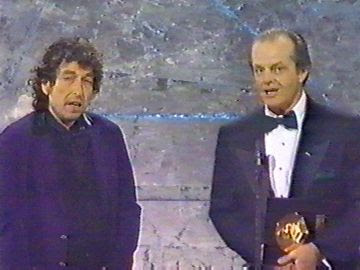
Sunday, 29 August 2010
Saturday, 28 August 2010
Thursday, 26 August 2010
On Writing, Pt. 1
What a divine description of this moment, though. This moment that every writer experiences, all too often: the way the sun shines on that one day when that woman stands in the doorway to her building with her two obedient dalmatians; the image of that man in the wheelchair and that man sitting beside him on the grass on the hill, just the two of them silently watching the sun set; that house-cat running solitary through the immense, pastoral landscape in the middle of the night; that one bus in the city whose insides glow blue and cast azure shadows over its strange, nighttime inhabitants; the way the earth looks on that day when that blizzard hits and the roads bears no markings and there is no visible difference between the land and the sky, a muted horizon, and it is so silent too. Dozens of these fragments, stashed away in some dusty cavern of the brain's filing system, decidedly unexplored. You can't write about everything.
I think every writer starting out should be handed a copy of Updike's early stories; he's the master of detail, for real. Going through my copy, I find lines annotated that I can't even recall reading. There are smears from tear drops, ash stains, big blotchy pen marks from the days when I respected my books less. But when I think about reading them, I just remember them having this profound impact on the way I thought about writing. They are really solid. He knows what he's doing.
Wednesday, 25 August 2010
Stuff White People Like: Thinking they know more about hip hop than other white people
Apparently, in his recent review of Big Boi's new album, Sasha Frere-Jones didn't find it important to talk about any of the rapper's work pre-2003, and, furthermore, to properly discuss the album he was reviewing. This isn't the first time Frere-Jones has fallen short in the face of a hip hop review. While that piece on MF Doom last fall was solid, really solid, I always find his reviews to exhibit such a narrow, well, aging white person perspective; they lack a general understanding of hip hop as a genre, and base their critiques on trivial elements usually involving an artist's career, blankly bypassing the heart of the album, the point. In this review, Frere-Jones spends a lot of time discussing the style on Big Boi's most recent Speakerboxxx album and his decision to release Sir Luscious under Def Jam, but doesn't bother mentioning any of Big Boi's, or Outkast's earlier work. I understand that Frere-Jones is attempting to paint a portrait of the artist by spending 3/4 of the article dissecting his previous work, but when you limit the scale of that portrait to that of a single, fairly commercial album released ten years after the beginning of an artist's career, it just seems silly. I appreciate that the New Yorker branches out into the genre when it does, but I just wish it tackled the subject with the same level of no-fucking-around-legitimacy that it does everything else. Like, if they want help, they can just ask, you know? In any case, the last paragraph was pretty good, so here it is:
"The musical DNA of 'Sir Luscious' lies in a simple strategy that Big Boi has used for years: he often raps in double time, no matter what the tempo of the song is. This means that even the slower songs, like 'Fo Yo Sorrows' and 'General Patton' (the latter has one of the better opera samples in recent hip-hop), which hover at around eighty beats per minute, don't drag--Big Boi uses the space in the beat to provide another rhythm with his words. More than once, I thought of the clatter of a lawnmower, where secondary rhythms whisper underneath the main beat. Though there are rappers with more puns and wider purviews than Big Boi--he raps too often about the club, for instance--there are not many who can be simultaneously forceful and careful. Despite any clichés about Southern dispositions, Big Boi is never laid back when he raps: he defines wide-awake."
Tuesday, 24 August 2010
Friday, 20 August 2010
I've been all around this great big world, and I've seen all kinds of girls
Spent yesterday hopping from winery to winery, throwing back Pinots and Zinfandels by the dozen. There was this one pristine moment, when we were barrelling down the winding road with all the window's open and a joint going, and everywhere you looked there was just sky and hills rolling in all directions covered with neatly-lined lush vineyards, and behind that small purple mountains, and the sun was so yellow, the air was so soft, everyone was very funny and vulgar and high and pleased with the surroundings, and everything was just fucking great--everything about it screamed run-on sentence with lots of descriptive visuals. I know it's cliche, but hanging around this part of Northern California really gives one the illusion of being amidst a Steinbeck novel, or at least what may once have been one. The way the grapes dangle, bountiful and dark, below the masses of green.
Tuesday, 17 August 2010
I just discovered this roll of photos from my step-grandmother's funeral almost two years ago, in the Highlands. Really please with these two images.[flickr.com/yellowcoat]
Friday, 13 August 2010
Leftovers
Just got a few random rolls from the summer back. Here's a few of my favorites from the bunch. The US images were all Portra 400 NC on a shutter speed higher, and the Barcelona images were, I believe Velvia 50. So you can decide if it makes a difference on a Canon A1, I guess.
Thursday, 12 August 2010
"Almost midway into Pilot Talk, there's a line that gets right to the heart of Curren$y's appeal: "Xbox web browser/ Download a updated NBA roster/ Play a 82-game season/ Condo full of snacks, Spitta not leaving." Not too many rappers could get away with bragging about sitting in their apartments all day playing NBA Liveand eating Doritos, and even fewer would try. But Curren$y has hit a certain level of mixtape-level cult stardom in part because he's perfected his amiable everydude stoner persona, and that comes across vividly in that line even though he never mentions weed. He doesn't have to; it's implied. The other thing about that line is its specificity. Curren$y's not just a guy who plays NBA Live all day; he's also one who makes sure he does it right, getting the updated roster. It might harsh his buzz if new Bull Carlos Boozer suddenly turned up in his old Utah Jazz uniform. He appreciates the smaller things."
[Tom Breihan, Pitchfork, 7/30/2010]
The opening paragraph of this Pitchfork review of the new Curren$y album is pretty spot on, mostly because I've definitely had that thought at one point while listening to that track, and a couple others on that album, while sitting in my apartment eating Doritos and feeling elite. I've been bumping that album a lot since it came out earlier this summer, been burning it for my friends, recommending it to strangers. For fear of sounding too Pitchfork-happy, I'll just say that yeah, it is a perfect mid-summer album, especially if you have to spend three days cleaning your new house because the previous tenant was a hoarder.
[Tom Breihan, Pitchfork, 7/30/2010]
Wednesday, 11 August 2010
These are selfish times, I got shellfish dimes and sanddollars
I've been listening to Why?'s Elephant Eyelash all week. It's very nice, which you probably already know. This album is like if cLOUDDEAD fucked Built to Spill, and Interpol filmed it, then laid down some guitar riffs in the background.
Tuesday, 10 August 2010
The hottest shit I've seen in awhile, and I even spotted UKNOWHOO on the street TWICE the other day.
 I'm literally going to masturbate over the utter perfection of this jeans/sandals combo as soon as I'm done writing this. Also for the record, that is what color I think every pair of skinny jeans should be. Just saying.
I'm literally going to masturbate over the utter perfection of this jeans/sandals combo as soon as I'm done writing this. Also for the record, that is what color I think every pair of skinny jeans should be. Just saying.[JAK & JIL BLOG]
Friday, 6 August 2010
You ever see someone puke up 5,000 Doritos?
Subscribe to:
Comments (Atom)






























